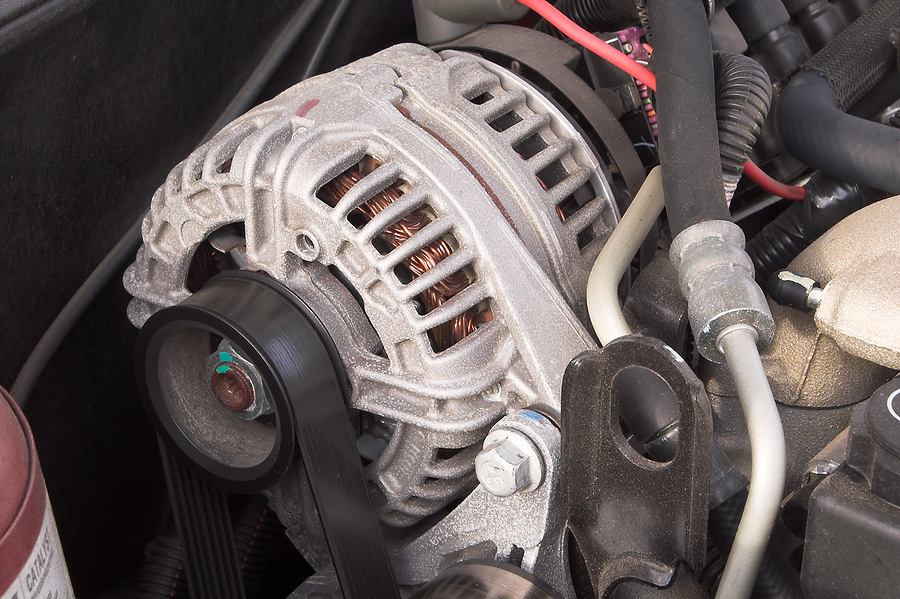In the complex maze of wiring and circuits that form the nervous system of modern vehicles, electrical issues are not uncommon. From the battery to the alternator, the omnipresent electrical connections ensure your vehicle operates smoothly and reliably. However, these systems can also be the source of perplexing problems that can leave you stranded or scratching your head.
In this blog post, we’ll delve into the common electrical woes that car owners face, arming you with the knowledge to identify, understand, and troubleshoot these issues effectively. So, whether you’re wrestling with a flickering headlight or a stubborn engine that won’t start, let’s uncover the mysteries of auto electrical systems together.

The Importance of Proper Electrical Maintenance
Before we dive into specific issues, it’s essential to understand the significance of proper electrical maintenance. With modern vehicles relying heavily on electronic components, a well-maintained and functioning electrical system is crucial for optimal performance. Neglecting regular maintenance can not only lead to frustrating breakdowns but also cause more severe damage and costly repairs. Thus, it’s essential to pay attention to warning signs and address any electrical issues promptly. Regularly checking your battery, alternator, and other key components can help prevent potential problems and keep your vehicle running smoothly.
The Top Culprits: Batteries and Alternators
When it comes to auto electrical issues, the most common culprits are batteries and alternators. A dead battery is a common occurrence, especially during colder months when it works harder to start the engine. If your vehicle won’t start and you suspect it’s due to a dead battery, jump-starting or replacing it may do the trick. However, if you find yourself frequently dealing with dead batteries, it could be a sign of an underlying issue with your alternator.
The alternator is responsible for recharging the battery while the car is running, and a faulty one can cause the battery to drain quickly. Other signs of a faulty alternator include dimming headlights or dashboard lights, strange noises, and warning lights on your dashboard. It’s important to address any issues with your batteries and alternators promptly to avoid further problems down the road.
Beyond the Basics: Fuses, Wiring, and Ground Connections
While batteries and alternators are often the first suspects when it comes to auto electrical issues, other components can also cause problems. One of these is a blown fuse. Fuses protect circuits from overheating by breaking the connection when excessive current passes through them. If your vehicle experiences a sudden loss of power to a specific system or component, it’s worth checking the fuses.
In addition to fuses, wiring and ground connections can also cause issues. Frayed or damaged wires can lead to short circuits, while loose ground connections can result in poor performance or complete failure of electrical components. Regularly inspecting these components and addressing any damage or issues can help prevent potential problems.
Don’t Underestimate the Impact of Corrosion
Corroded connections are another common source of auto electrical issues. Over time, moisture and road salt can cause corrosion on battery terminals, wiring connections, and other components. This build-up of corrosion can impede the flow of electricity and lead to various problems ranging from dim lights to complete failures. Regularly cleaning and maintaining these connections can help prevent this issue, but if you find your vehicle suffering from corroded connections, they may need to be replaced entirely.
Other Common Electrical Issues
In addition to the above culprits, there are several other common electrical issues that car owners may face. These include faulty starter motors, malfunctioning sensors, and damaged spark plugs. It’s essential to address these issues promptly as they can lead to more severe problems if left unattended. Familiarizing yourself with these components and their functions can help you troubleshoot any potential issues.
In Conclusion
Auto electrical issues can be frustrating and time-consuming, but with proper knowledge and maintenance, they can be easily identified and resolved. Regularly inspecting key components such as batteries, alternators, fuses, wiring, and connections can help prevent potential problems and keep your vehicle running smoothly. Don’t underestimate the importance of proper electrical maintenance and addressing issues promptly to avoid more severe damage down the line. By harnessing the power of understanding and troubleshooting auto electrical problems, you’ll be well-equipped to handle any challenges that come your way.
Keeping up with regular automotive maintenance is the most reliable way to maintain your car’s electrical system – especially if you drive a European vehicle. Contact Autohaus Dierolf at 317-571-0800 for professional auto electrical repair in Carmel, Indiana. We specialize in all make and model European and German vehicles.
Related Posts:
Choosing the Right Car Battery for a German Car: Factors to Consider
Comprehensive Guide to Troubleshooting Common Issues with German Cars
Recommended Automotive Maintenance for a Car You Barely Drive
